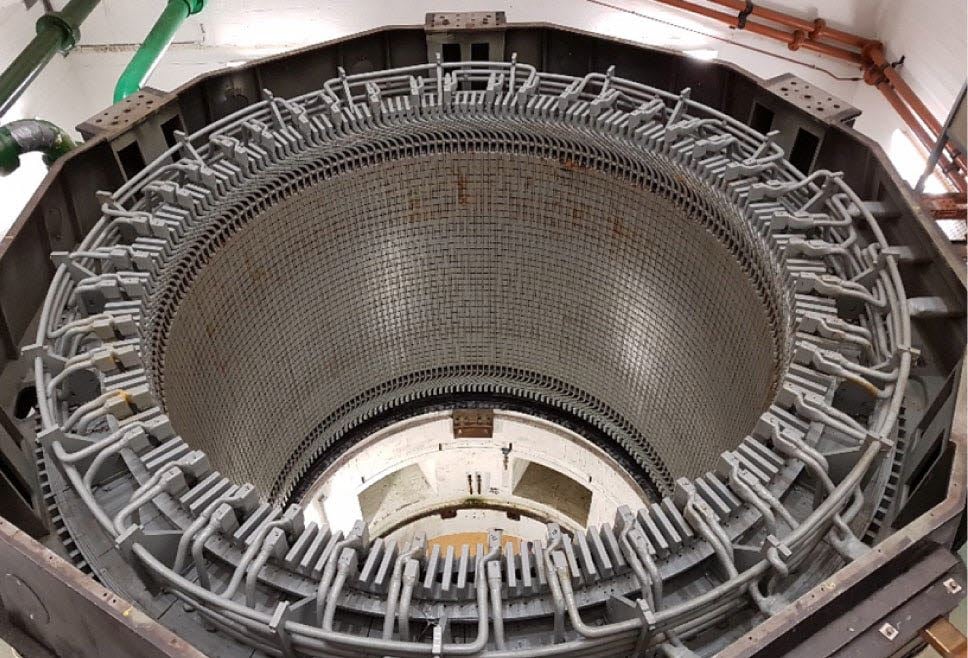In addition, changing operation patterns from base load to intermittent for the Norwegian ageing hydrogenerator population, have created a need for knowledge of the actual condition of the insulation. This calls for research on new condition monitoring methods.
This project will accommodate and evaluate promising variable frequency methods currently adopted by other high voltage apparatuses such as transformers and cables. These methods are likely to provide more valuable diagnostic information of the stator winding insulation condition compared to other methods in use today.
Hydrogenerator stator bars from storage or service as well as model bars will be included in the project. The measurements will be related to actual failure mechanisms and classified in terms of condition states. The condition state of stator winding insulation is essential in making correct maintenance and renewal decisions.
In this work, financial support from the Norwegian Research Council is essential to establish fruitful co-operation between Norwegian and foreign hydroelectric power companies, NTNU, SINTEF Energy Research, Institut de Recherche d'Hydro-Québec (IREQ), EDF, KTH and the University of Uppsala.
Primary objective:
- Establish new and reliable condition assessment criteria for high voltage hydrogenerator stator winding insulation systems to improve maintenance and reinvestment decisions.
Secondary objectives:
- Develop an assessment methodology to determine the condition of back-up hydrogenerator stator windings
- Establish new diagnostic evaluation criteria for the generator stator insulation
- Adapt classification assessment methods for the evaluation criteria
- Provide technical and economic support for one PhD, one Post Doc and several MSc students at NTNUs Department of Electrical Power Engineering
This project i supported by:
- The Research Council of Norway
- Hydro
- Eidsiva
- Sirk-Kvina kraftselskap
- Statkraft

